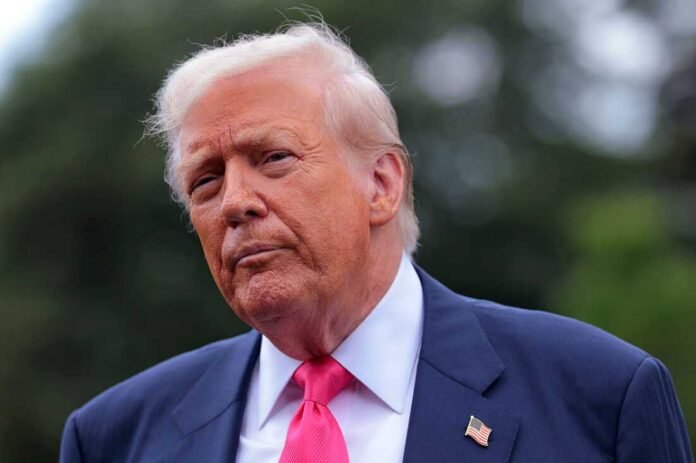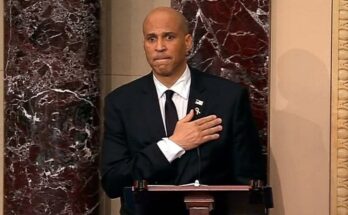
In a narrow 51-48 vote early Thursday morning, the U.S. Senate approved a $9 billion rollback in federal spending, marking a notable moment for those pushing for more efficient use of public funds. This measure, championed by President Donald Trump’s administration, signals a renewed focus on trimming excess spending and redirecting resources toward core responsibilities.
The package includes reductions to foreign assistance and halts several longstanding funding streams, including financial support for public broadcasting networks like PBS and National Public Radio. These adjustments reflect broader calls for a shift in how Washington manages its budget, especially in light of years of persistent deficits.
A Divided Vote Reflects Broader Debate
Not all members of the president’s party were on board. Republican Senators Lisa Murkowski of Alaska and Susan Collins of Maine broke ranks and voted against the measure, aligning with Democrats in expressing concerns over how the cuts were structured.
The rescission package now heads back to the House of Representatives for reconciliation. Earlier, the House had approved a slightly larger version totaling $9.4 billion. The Senate’s adjustment—restoring $400 million in global health support, particularly for programs in Africa—helped secure the votes needed for passage.
Supporters Call It a Step Toward Fiscal Responsibility
Senate Republican leaders celebrated the vote as a first, albeit modest, step toward reducing unnecessary spending.
Senate Majority Leader John Thune emphasized the importance of shifting to a more disciplined budgeting process:
“This vote sends a clear signal that we’re taking steps to correct course. It’s a small but necessary move in the direction of greater accountability.”
He acknowledged the work done by the executive branch in identifying programs that could be streamlined or reduced, and encouraged further efforts in that direction.
Concerns Over Transparency and Public Impact
Despite supporting the idea of spending reductions in principle, Senator Susan Collins raised serious concerns over the lack of detail in the rescissions proposal. As chair of the Senate Appropriations Committee, she highlighted the vague nature of the documentation provided by the Office of Management and Budget (OMB).
“We were given a list with minimal explanation,” Collins said. “There’s $2.5 billion marked for cuts in the Development Assistance account, but we weren’t told exactly which programs are affected—whether it’s school access, clean water, or food security programs.”
Murkowski echoed those concerns, warning against bypassing normal legislative processes and expressing concern that Congress seemed to be responding more to executive direction than to its own deliberative authority.
Broadcasting Cuts Spark Pushback from Rural Senators
One of the most contentious aspects of the package was the proposed reduction in support for public broadcasting, a move that drew particular concern from lawmakers representing rural areas.
Senators Murkowski and Collins argued that local public radio stations serve a vital role in their states, especially in providing emergency alerts in remote regions.
Murkowski referred specifically to tsunami warnings that had recently been issued across Alaska as proof of the system’s critical value.
“Yes, the tsunami warnings were lifted. But this should serve as a reminder,” she said. “Our public broadcasting stations are sometimes the only line of communication in remote communities.”
Though Collins prepared an amendment to reduce the overall cuts to just over $6 billion, she ultimately did not bring it to the floor herself. Instead, Senator Mark Kelly of Arizona presented it on her behalf. Murkowski offered a separate amendment aimed specifically at protecting public broadcasting funds.
Critics Say the Cuts Are Modest in Context
While some senators expressed alarm over the targeted reductions, others questioned the reaction, arguing that the scope of the cuts was relatively limited.
Senator Ron Johnson of Wisconsin remarked that the rollback accounted for less than a tenth of one percent of the overall federal budget.
“We’re not talking about sweeping changes,” he said. “It’s a small adjustment, and I trust the administration’s judgment on where to make it.”
Senator Eric Schmitt of Missouri, who played a leading role in advancing the bill, pushed back against criticism from fellow Republicans. He emphasized that the process of debating and shaping the bill reflected the very principles of legislative responsibility that his colleagues were calling for.
“This is about restoring focus. If these changes help us identify places to save going forward, then that’s progress,” Schmitt said.
What Comes Next
With the Senate version of the package now passed, the House will need to take another look, likely negotiating final details in the coming weeks.
While opinions remain divided, the broader theme is clear: lawmakers are facing increasing pressure to address long-term budgetary concerns with concrete action. And for supporters of Thursday’s vote, this marks an early effort to rein in spending while encouraging a renewed commitment to efficient governance.


